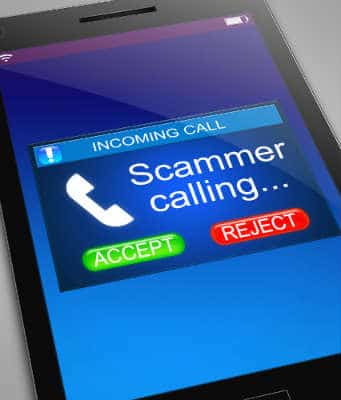Q: Why do 866 numbers keep calling me? Are they scammers?
A: Scam calls from the 809 area code and similar numbers like 649, 284, and 866 are more than just annoying—they’re potentially expensive traps. The Federal Communications Commission (FCC) warns consumers that these calls often lead to costly international charges or phishing schemes designed to steal your personal information.
Here’s what you need to know about how these scams work, how to spot them, and what to do if you become a victim.
What Is the 809 Area Code Scam?
The scam typically begins with a missed call or voicemail from what appears to be a U.S.-based number. However, area codes like 809, 649, 284, and 876 are not domestic—they’re international.
These numbers originate from the Caribbean but are easily mistaken for U.S. numbers:
-
809 – Dominican Republic
-
649 – Turks and Caicos
-
284 – British Virgin Islands
-
876 – Jamaica
Scammers often leave messages urging you to call back regarding:
-
A fake prize or lottery win
-
A sick or injured family member
-
An adult entertainment inquiry
Once you return the call, you’re routed through premium-rate international lines that can result in high per-minute charges. Worse, you may be placed on hold or shuffled through prompts to extend the call and increase charges.
Why These Calls Are So Deceptive
The primary reason these scams succeed is that the numbers appear domestic. Many victims return the call assuming it’s harmless or even important.
Scammers may also spoof legitimate-looking toll-free numbers like 866, making them seem credible and trustworthy. Once on the line, they might attempt to gather your personal or financial information under false pretenses.
How to Protect Yourself From Area Code Scams
Follow these safety tips to reduce your risk:
-
Don’t return calls from unfamiliar area codes, especially 809, 649, 284, or 876
-
Use a reverse phone lookup tool like UnMask’s phone lookup to verify unknown numbers
-
Ask your carrier to block international calls if you don’t use them
-
Never give out personal information over the phone to unknown callers
-
Report scam calls to the FCC or FTC
What to Do If You’re Charged for a Scam Call
If you accidentally returned a scam call and incurred charges:
-
Contact your phone provider immediately to dispute the charges
-
File a complaint with the FCC at their Complaint Center
-
Report fraud to the FTC at ReportFraud.ftc.gov
Acting quickly improves your chances of recovering any charges and helps authorities combat these scams.
How to File a Complaint With the FCC
To report a scam:
-
Online: FCC Complaint Center
-
Phone: 1-888-CALL-FCC (1-888-225-5322)
-
TTY: 1-888-TELL-FCC (1-888-835-5322)
-
Mail:
Federal Communications Commission
Consumer Inquiries and Complaints Division
445 12th Street, SW, Washington, DC 20554
Be sure to include:
-
Your contact details
-
Involved phone/account numbers
-
Company names and disputed charges
-
Any attempts to resolve the issue
How to File a Complaint With the FTC
To file with the FTC:
-
Online: ReportFraud.ftc.gov
-
Phone: 1-877-382-4357
-
TTY: 1-866-653-4261
-
Mail:
Federal Trade Commission
CRC – 240
600 Pennsylvania Ave., NW, Washington, DC 20580
Is the 866 Area Code a Scam?
Is a phone number that starts with 866 always suspicious?
Not necessarily. 866 is a legitimate toll-free area code, commonly used by businesses. However, scammers frequently spoof toll-free numbers to make their calls seem trustworthy.
How to verify an 866 number?
-
Don’t trust the caller ID
-
Look up the organization’s official contact number
-
Call back only using a verified number from their official website
Final Thoughts: Stay Safe From Phone Scams
The 809 area code scam and others like it use confusion and deception to trick victims into racking up charges or divulging sensitive information. By staying alert, questioning unknown calls, and reporting suspicious activity, you can protect yourself and your finances.
Don’t let curiosity or urgency cloud your judgment—always verify before you call back.
FAQs: Scam Call
Are calls from the 809 area code always scams?
Not always, but many phone scams do originate from the 809 area code (Dominican Republic). If you don’t know the caller, avoid calling back.
How can I block international calls?
Call your phone service provider and ask them to block outgoing international calls, especially if you rarely or never use them.
Can I get a refund for scam call charges?
Yes, it’s possible. Start by contacting your phone carrier. If they don’t resolve it, file complaints with the FCC and FTC.
Why do scammers use toll-free numbers like 866?
They spoof toll-free numbers to seem credible. Many people trust toll-free prefixes, which scammers exploit to gain information or prolong calls.
How can I tell if a number is suspicious?
Use tools like UnMask or Whitepages to check unknown numbers. If anything looks suspicious, don’t answer or call back.










